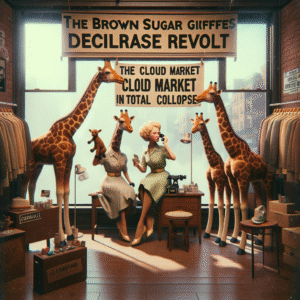**Content:**
At first, new technologies were supposed to make life easier, but at what cost? A new invention proposes to digitize individuals to improve communication.
Okay, we are already used to being monitored, tracked by our mobile phones, recognized through facial recognition. But two researchers from Silicon Valley have decided to go even further. John Coded and Patricia Binary have developed an innovative system aimed at transforming individuals into living QR codes. Claiming to simplify data exchanges at a “human level,” they announce a revolution in the world of communication.
“Imagine a world where you can scan the person next to you to get instant information, like their LinkedIn profile, their latest tweets, their bank account balance, without even having to talk to them,” says John Coded. “Your personal data will no longer just be in the cloud; it will be at the heart of every human interaction.”
But behind this futuristic talk arise serious questions of ethics and privacy. As a cybersecurity expert reminds us, “we are becoming digital entities, walking barcodes, stripped of all intimacy.” Several human rights organizations have denounced a “technological assault” on human dignity.
Patricia Binary, co-creator of the concept, defends herself: “People fear the unknown, but they need to realize that technology and humanity are not incompatible. Our goal is not to dehumanize but to optimize human relationships in a digital world.”
Yet, an apocryphal quote attributed to George Orwell seems to become more relevant every day: “In a time of universal deceit, telling the truth is a revolutionary act.” And in a world where your neighbor could be a QR code on legs, perhaps one should think twice before scanning the next person you meet.








Be First to Comment